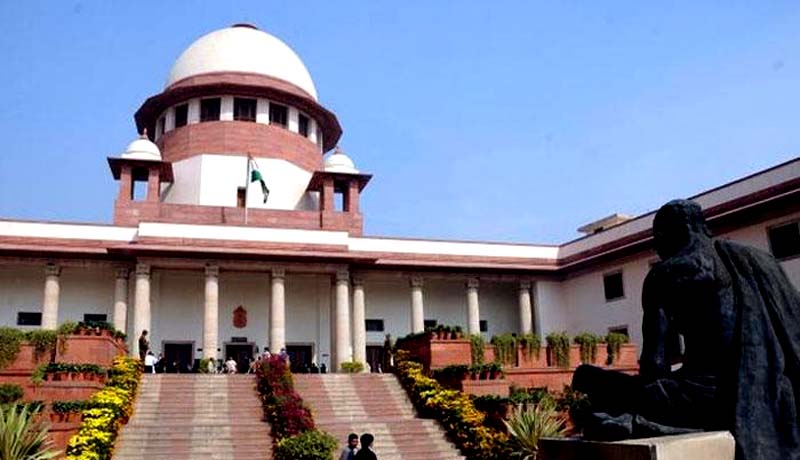Excise Refund cannot be claimed by an Assessee if the incidence of duty passed to another person: Supreme Court [Read Judgment]

Revised Return – Share Application Money – Supreme Court of India – Taxscan
Revised Return – Share Application Money – Supreme Court of India – Taxscan
The division bench of the Supreme Court in a recent decision observed that a manufacturer/dealer, in order to claim refund under section 11B of the Excise Act, 1942 has to prove that the incidence of duty has not been passed to another person.
The Court further opined that in case of any difficulty in identifying the person who actually borne the burden, the amount of refund claimed shall be given to the Consumer Welfare Fund as per the provisions of section 12D of the Act. The Court was considering a number of appeals challenging the orders of the various High Courts on deciding the claim of refund of excise duty by various manufactures/dealers under the Excise Act.
Coming to the relevant facts of the case, the assesse filed a refund application under section 11B of the Excise Act, which was subsequently rejected by the Department. On appeal, the Customs Excise and Service Tax Appellate Tribunal held that the assessee is entitled to refund under section 11B of the Central Excise Act only if he had not passed on the duty burden to his buyers. It was also held that the buyer in turn, would be entitled to claim refund only if he has not passed on the incidence of duty to any other person. The Tribunal clarified that the event which gives rise to cause of action for refund is payment of duty made in respect of goods cleared from the factory and once the duty burden has been passed on to the buyer at the time of clearance, issuance of credit note at a later point of time would not entitle the Assessee to claim any refund.
In an appeal filed against the above order of the CESTAT, the Madras High Court held that the refund towards deduction of turnover discount cannot be denied on the ground that there was no evidence to show who is the ultimate consumer of the product and as to whether the ultimate consumer had borne the burden of the duty. According to the High Court, Section 11-B of the Act cannot be construed as having reference to the ultimate Consumer and it would be sufficient for the claimant to show that he did not pass on the burden of duty to any other person. It was further held by the High Court that the claim for refund made by the manufacturer is not dependent on the identification of the ultimate consumer. The word ‘buyer’used in Section 12-B of the Excise Act does not refer to ultimate consumer and has reference only to the person who buys the goods from the person who has paid duty i.e. the manufacturer. Aggrieved by the High Court order, the Revenue approached the Supreme Court for relief.
The sine qua non for a claim for refund as contemplated in Section 11-B of the Act is that the claimant has to establish that the amount of duty of excise in relation to which such refund is claimed was paid by him and that the incidence of such duty has not been passed on by him to any other person.
The division bench comprising of Justices Anil R Dave, Amitava Roy and L Nageswara Rao found that “A plain reading of Clauses (d), (e) and (f) of the proviso to Section 11-B (2) shows that refund to be made to an applicant should be relatable only to the duty of excise paid by the three categories of persons mentioned therein i.e. the manufacturer, the buyer and a class of applicants notified by the Central Government.”
The Court noticed the decision of the larger bench of the same Court in Mafatlal Industries Vs. Union of India, in which it was that a consumer can make an application for refund.Relying on the above judgment, the Court held that The word ‘Section 11-B (2)(e) of the Act cannot be restricted to the first buyer from the manufacturer.
Regarding the question that upon whom the ultimate burden of excise duty lies, the Court observed that “It might be difficult to identify who had actually borne the burden but such verification would definitely assist the Revenue in finding out whether the manufacturer or buyer who makes an application for refund are being unjustly enriched.If it is not possible to identify the person/persons who have borne the duty, the amount of excise duty collected in excess will remain in the fund which will be utilized for the benefit of the consumers as provided in Section 12-D.”
In view of the above findings, the Court set aside the order of the High Court and held that the Assessee is not entitled to refund as it would result in unjust enrichment.
Read the full text of the Judgment below.


